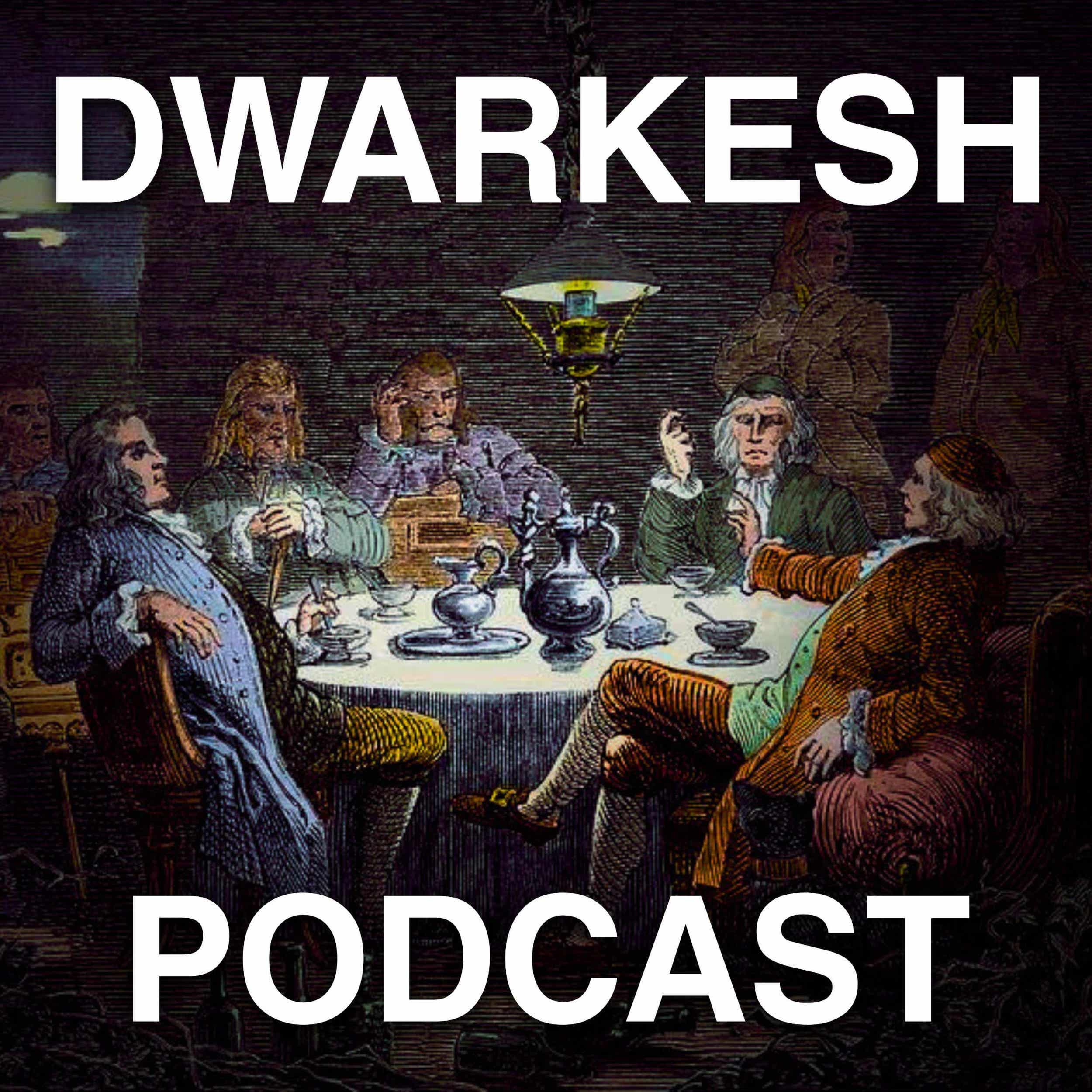

Dwarkesh Podcast
Dwarkesh Patel
Deeply researched interviews www.dwarkesh.com
Episodes
Mentioned books

683 snips
Mar 5, 2025 • 20min
Notes on China
Dive into China's urban landscape and see how its rapid development contrasts with the U.S. Learn about the societal pressures young people face and the critiques around technology and AI. Discover how travel enriches your understanding of Chinese political dynamics, while emphasizing the necessity of stepping back from routine. This exploration is filled with personal anecdotes and compelling insights that inspire fresh questions about a country in constant motion.

3,961 snips
Feb 19, 2025 • 1h 16min
Satya Nadella — Microsoft’s AGI plan & quantum breakthrough
Satya Nadella, CEO of Microsoft and a leader in AI and cloud computing, shares his insights on the future of technology. He discusses why he doesn't believe in Artificial General Intelligence but is optimistic about a 10% economic growth. Nadella unveils Microsoft's quantum breakthrough and how AI can revolutionize gaming with the Muse model. The conversation also touches on the evolving landscape of legal frameworks for AI and the decreasing costs of intelligence, stressing the importance of human dignity in future labor.

922 snips
Feb 12, 2025 • 2h 15min
Jeff Dean & Noam Shazeer — 25 years at Google: from PageRank to AGI
In this enlightening discussion, Jeff Dean, Google's Chief Scientist with 25 years of transformative tech experience, teams up with Noam Shazeer, a visionary behind key architectures in AI. They delve into the evolution of AI from basic n-grams to advanced neural networks, and the importance of AI-driven breakthroughs in chip design. Jeff shares his ambitious vision for Pathways, a revolutionary concept for optimizing algorithms and hardware. Noam boldly predicts a future with a multitude of automated researchers, hinting at a world forever transformed by technology.

435 snips
Jan 30, 2025 • 1h 48min
Sarah Paine — How Mao conquered China (lecture & interview)
In this discussion, Sarah Paine, an expert on Chinese history, dives deep into Mao Zedong's complex legacy. She reveals how Mao maintained power amidst chaos and the irony of his transition from military genius to an economic disaster, highlighting the catastrophic Great Famine. The conversation covers Mao's innovative guerrilla tactics, peasant mobilization, and the contradictions of his Great Leap Forward. Paine also touches on the lasting impact of Mao's policies on contemporary leaders and the intricate relationship between Western perceptions and his regime.

595 snips
Jan 23, 2025 • 2h 8min
Sarah Paine — Why Japan lost WWII (lecture & interview)
In this conversation, Sarah Paine, a Naval War College professor and author, dives deep into Japan's military missteps during WWII. She reveals how cultural concepts like bushido influenced decision-making, often to their detriment. The discussion touches on Japan's oil shortages that fueled conflict and critiques its chaotic command structure. Paine shares insights on Japan's strategic failures, highlighting how misunderstandings in cultural dynamics shaped the war's tragic narrative.

846 snips
Jan 16, 2025 • 2h 13min
Sarah Paine — The war for India (lecture & interview)
In a riveting discussion, Sarah Paine, a Professor at the Naval War College and an expert in great power politics, dives deep into pivotal Cold War decisions that shaped South Asia. She explores the complexities of alliances involving superpowers and how these influenced the Sino-Indian War. The podcast highlights the lasting repercussions of historical conflicts, the nuances of foreign interventions, and the strategic significance of military aid. Expect insights on geopolitics, historical figures, and the intricate interplay of international relations.

1,321 snips
Jan 9, 2025 • 60min
Tyler Cowen — The #1 bottleneck to AI progress is humans
Tyler Cowen, an economist and writer known for his insights on Marginal Revolution, joins to discuss the limitations of AI in driving economic growth. He argues that human intelligence is the true bottleneck to progress and highlights the complex interplay of culture and innovation. The conversation also dives into the role of founders in success stories and the importance of networking in an AI-driven world. From effective altruism to historical perspectives on leadership, Cowen's insights challenge conventional narratives on progress.

549 snips
Dec 26, 2024 • 2h 44min
Adam Brown — Bubble universes, space elevators, & AdS/CFT
Adam Brown, a theoretical physicist at Stanford and lead at BlueShift in Google DeepMind, dives into profound cosmic questions and the future of the universe. He discusses the mind-bending concepts of black hole mining for energy and the holographic principle, revealing how these ideas could reshape our understanding of reality. Brown also speculates on training AI to achieve breakthroughs akin to Einstein's. With a blend of science and philosophy, he navigates the thrilling yet daunting prospects of altering the universe's trajectory.

1,085 snips
Nov 13, 2024 • 1h 37min
Gwern — Anonymous writer who predicted AI trajectory on $12K/year salary
Gwern Branwen is a pseudonymous researcher celebrated for his insightful analyses of AI and its future. In this discussion, he delves into the importance of anonymity in protecting biases and encourages a hybrid workplace model integrating AI and human creativity. He reflects on the evolution of intelligence, highlights the joy of intellectual curiosity through varied personal experiences, and shares his strategies for maintaining a minimal income while sustaining creative passions. The conversation also touches on the need for high-quality training data in AI development.

717 snips
Oct 2, 2024 • 2h 10min
@Asianometry & Dylan Patel — How the semiconductor industry actually works
Dylan Patel, the brains behind Semianalysis, and Jon Y, creator of Asianometry, dive deep into the semiconductor industry. They explore the geopolitical tensions shaping chip manufacturing, especially in China and the U.S. The duo discusses the intricate challenges of semiconductor scaling and the future of AI hardware, while speculating on the potential impact of a Taiwan crisis. With insights into Huawei's strategies and vibrant anecdotes, this discussion unpacks the complex world of semiconductors and their role in technological advancement.


